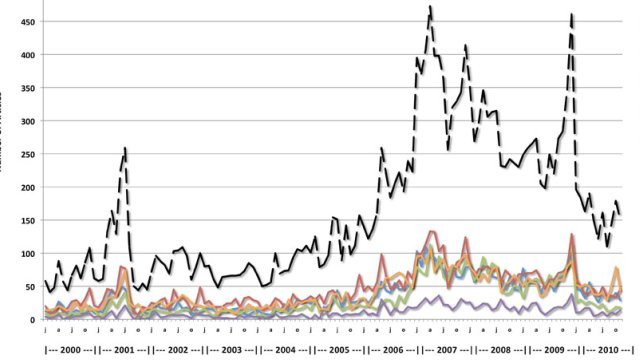A New Year in Congress

It’s a new year in Congress. With the start of the 112th Congress the Republicans have assumed control of the House. Rep. John Boehner (R-OH) became the new Speaker of the House today, taking over the job from Rep. Nancy Pelosi (D-CA) who will stay on as Minority Leader. The Democrats retain control of the Senate, but by a slimmer margin. Senate Democrats now need 7 Republicans to vote with them in order to avoid a Republican filibuster. Not much is going to get done in this Congress unless both parties work together.
“The people voted to end business as usual,” Boehner said, “and today we begin carrying out their instructions.” Republicans will start by introducing a bill—almost certain to fail—to appeal last year’s landmark health care reform legislation. But if their efforts to actually repeal health care reform may be only symbolic—as much of what they do will be—they may be able to prevent the legislation from being implemented by cutting off its funding. In addition, Rep. Darrell Issa (R-CA) will use his subpoena power as the chair of the House Oversight and Government Reform Committee to launch investigations into what he calls “one of the most corrupt administrations.”
The Democrats, meanwhile, have scaled back the aggressive agenda they pursued in the last Congress. Senate Democrats have started by proposing filibuster reform. The Democratic proposal would eliminate the “secret holds” that allow a single Senator to block legislation anonymously, protect the right of the minority to offer amendments to pending legislation, and expedite votes to confirm presidential nominees. It wouldn’t eliminate the filibuster itself—which contrary to popular belief is nowhere in the Constitution—meaning that just 41 of 100 senators will still be able to keep legislation from coming to a vote. But it would force minorities that want to block legislation to go through the difficult and dramatic process of actually holding the floor while doing it, making it unlikely that senators will continue to filibuster routine votes. In the short term, filibuster reform is in the Democrats’ own self-interest, since they hold the majority in the Senate, although Republicans are likely to retake the Senate in 2012 when mostly Democrats will be up for reelection. But in any case, as Sen. Tom Udall (D-NM) argues, sooner or later some kind of filibuster reform is probably necessary.
Democrats and Republicans will also have to look for common ground. With both parties in control of one of the chambers of Congress, it will be hard for either party to avoid responsibility for congressional gridlock. But the two parties may be able to work out deals on public education, trade with South Korea, and immigration reform. In that way the next two years may ultimately prove to be more like the quietly productive lame-duck session that just ended than like the dramatic, contentious bulk of the last Congress.
Photo Credit: Kevin McCoy





